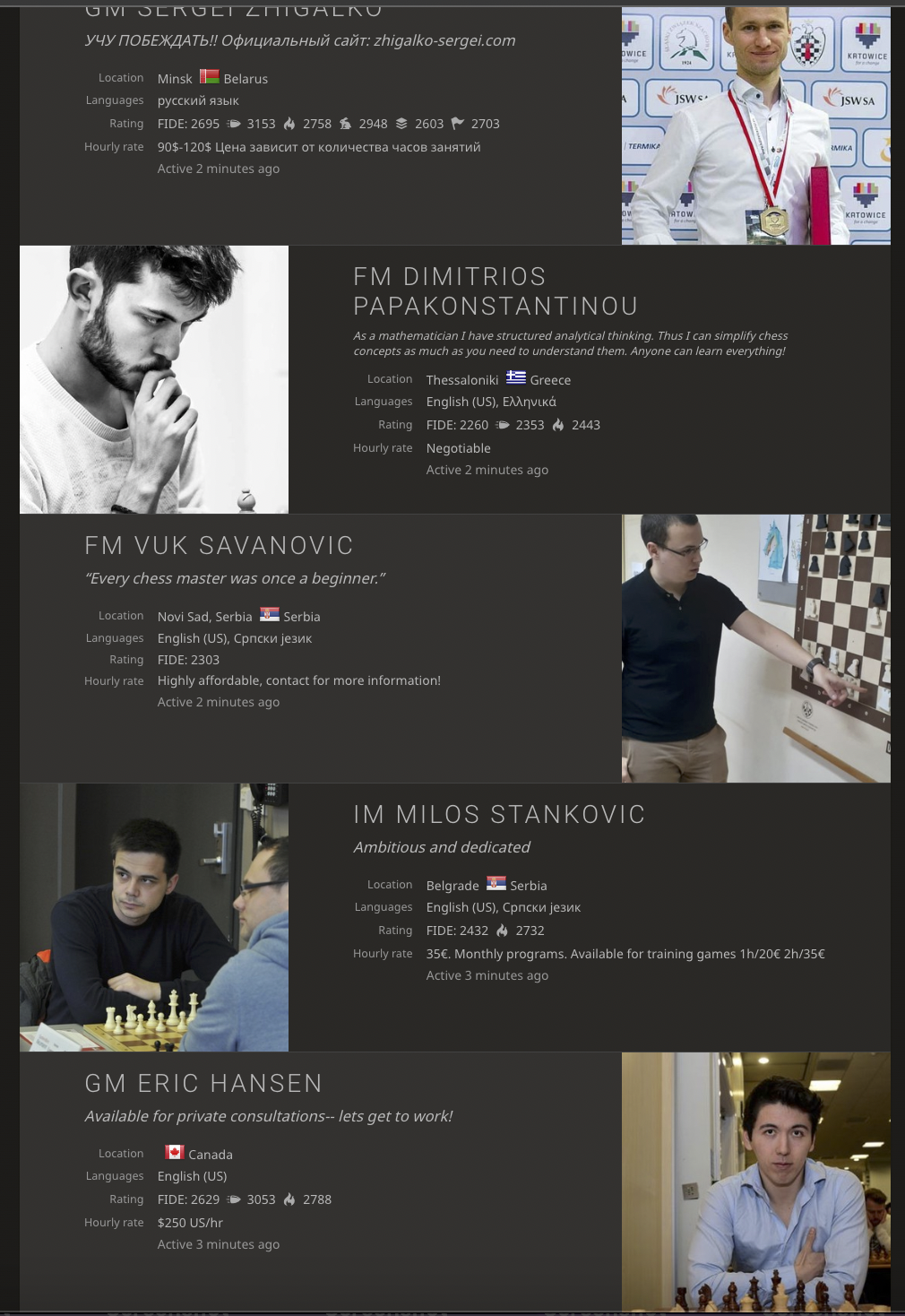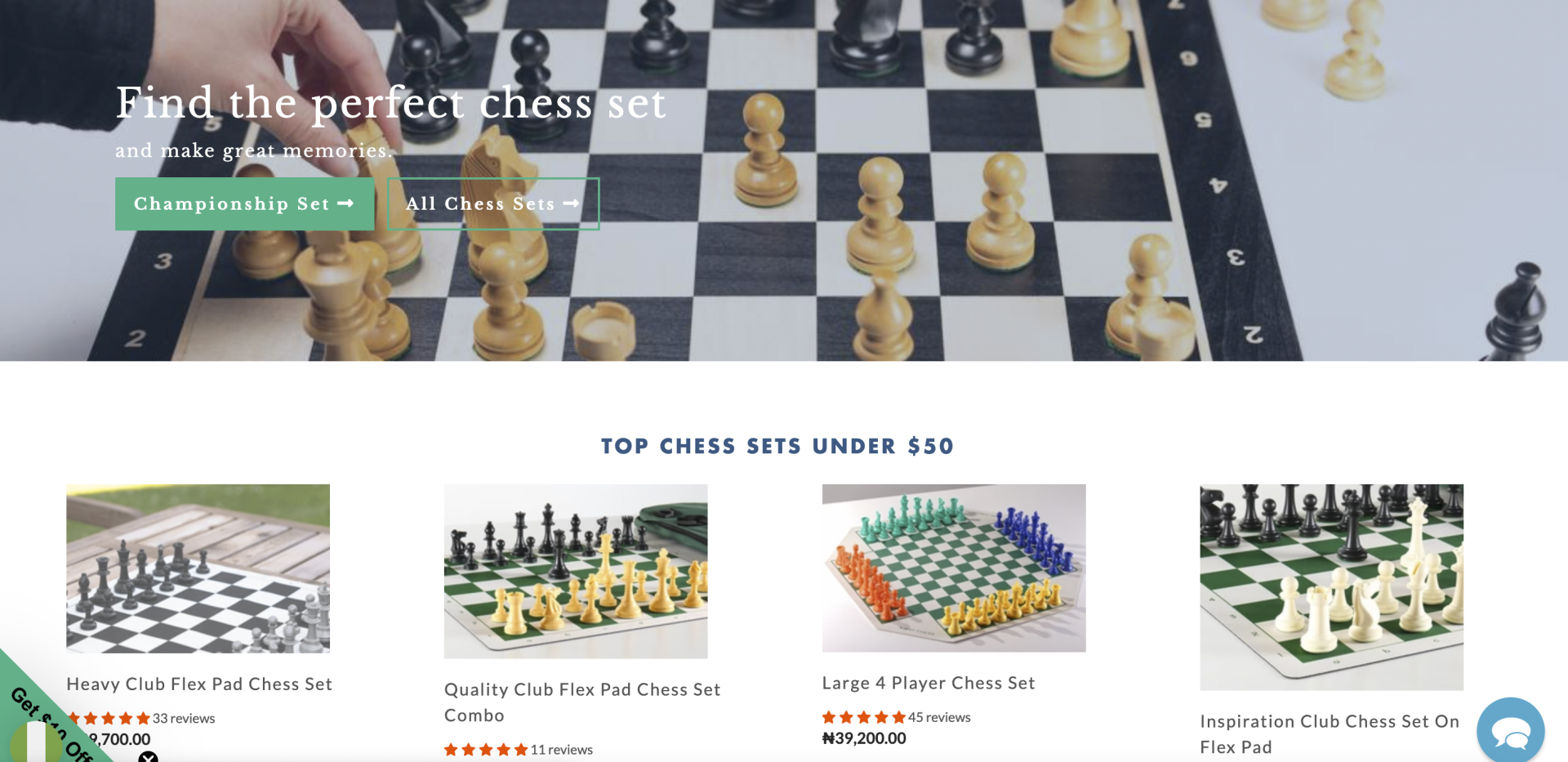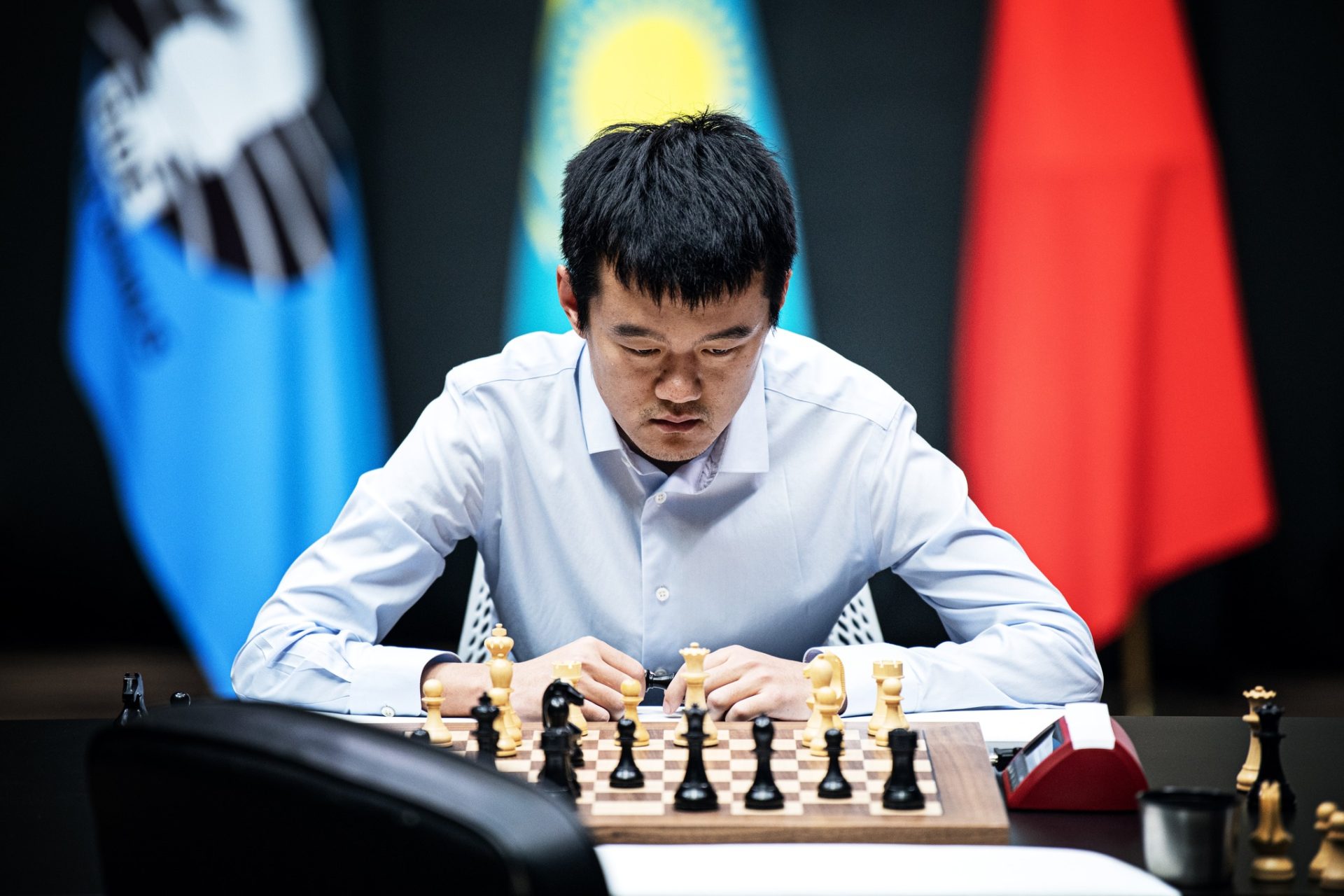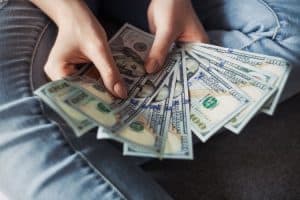The top 50 chess players in the world make over $100k each year and that mainly comes from playing for clubs, competing in tournaments, appearance fees, and sponsorship.
On the other hand, the typical pro chess player makes far less than $100k/year, relying on their efforts in coaching, being an arbiter for chess matches, selling chess merchandise, chess hustling, etc all in a bid to make a decent yearly wage.
For super grandmasters, the likes of Hikaru Nakamura, Fabiano Caruana, Magnus Carlsen, Ding Liren, Ian Nepomniachtchi to name a few, earn ~$500k to a million dollars in tournament winnings every year.
An example is the new world chess champion, Ding Liren who earned 1.1 million euros (equivalent to 1.2 million dollars) as the winner of the 2023 World Chess Championship.
The World Chess Championship has the highest prize fund in the world (2 million euros as recorded in 2021 and 2023). For more regular tournaments, the first prize usually ranges from $50k to $200k.
For example, in August 2023, Magnus Carlsen defeated his young grandmaster opponent, 18-year-old Rameshbabu Praggnanandhaa to claim $110,000 as the winner of the FIDE world cup. Prag on the other hand got $80,000 for his impressive second-place position.
Polish GM Jan-Krzysztof Duda in 2021 won Russian Grandmaster Sergey Karjakin in the final match of the same FIDE World Cup and ended up with a similar prize fund of $110,000 while Karjakin got $80,000.
How Much Can You Make Playing Chess?
Unfortunately, most of the wealth in chess is only concentrated at the top. The cash prizes for competitive chess tournaments usually overshadow the earnings from other tournaments.
Does that mean that you have no hope of earning from your beloved game? No, not at all.
There are two primary ways you can make money playing chess:
You can either make money playing chess online or by playing over the board physically with an opponent.
Several online chess platforms exist where players may generate income by participating in tournaments and winning cash prizes.
A good example of such platform is chess dot com. The #1 chess platform in the world sometimes hosts online tournaments with mouth watering cash prizes.
You can also try to search for local chess tournaments around your location, or participate in yearly tournaments hosted by your national chess federation.
10 Ways Chess Players Earn Their Income (And You Can Too)
Players close to the bottom of the top 100 are very unlikely to earn over $100k. For most, the figure hovers around $50-70k.
And without any atom of surprise, many of these players have employed several alternatives to earn extra income.
If you struggle to earn from tournament winnings, perhaps you may want to try any of these alternatives mentioned below.
Club Playing
Many chess players make a vast amount of their money by playing for clubs at different tournaments. They are usually paid anywhere between $5,000 to $20,000 for competing for a particular club.
Appearance Fees
Appearance fees often work for the top chess players who are given money to show up or participate in a prestigious event. This can be a tournament, a simul, a lecture, or a promotional activity. Appearance fees can vary depending on the player’s rating, popularity, and the organizer’s budget.
Scholarships and Stipends
Remarkable chess players seeking college education may get a grant or some special bursaries to pursue their career. Some universities and colleges offer chess scholarships to attract talented players and boost their chess teams.
National teams also have a special wage that varies among countries. Some federations pay their players a monthly stipend, while others only pay for travel and accommodation expenses.
Always keep in mind that sponsors look out for promising players so if you can show yourself as one, you have a very good chance at getting needed support.
Performances
Simuls, exhibition matches, and other events of this type are another way for you to earn money. A simul is when a chess player plays against multiple opponents at the same time, usually with a time advantage.
An exhibition match is when two chess players play a series of games, often with special rules or conditions. These events can be entertaining and educational for the audience, and profitable for the players.
Literature
If you’re into writing books & columns, you can write materials regarding chess on several topics such as openings, tactics, strategy, endgames, history, biography, psychology, and more.
Writing is not just another rewarding and enjoyable activity but also a way to share your knowledge with the chess world. Some of the most prolific and influential chess writers include Mark Dvoretsky, John Nunn and Yasser Seirawan.
Organizational Work
Another way to make money from chess is to be involved in the organizational work of chess events, such as being an arbiter, a tournament director, a commentator, or a technical assistant.
These roles require a good knowledge of chess rules, regulations, and procedures, as well as the ability to handle various situations that may arise during a chess competition.
Depending on the level and prestige of the event, the organizers may offer different payments and benefits to the officials. However, the earnings of arbiters may vary from country to country, depending on your local chess federation and the market demand.
Become a Coach
Apart from playing tournaments, this is usually the second most popular way people earn from chess.
The reason for its popularity? You don’t have to be an expert or a professional player to become a chess coach, as long as you have a passion for chess and a desire to share your knowledge and experience.
You can coach individuals and groups whether online or offline. However, having a chess title or a rating helps you appear more credible to interested candidates and allows you to charge higher fees.
According to some online platforms, such as chess dot com and Lichess, IMs and GMs charge about $20-50 per hour, while players without titles usually charge about $3 -$15 per hour. Some GMs even charge as much as $100-$250 per hour.

Being a Chess Second
You can also make money from chess by being a chess second. This means assisting active players in their preparation and analysis for important tournaments or matches.
A chess second can help by playing sparring matches, preparing novelties, pinpointing opponents’ weaknesses, checking databases, and providing moral support.
Being a chess second can be a rewarding but it’s also quite demanding and stressful, as it requires a lot of time, dedication, and loyalty.
Sometimes, being a chess second can also cause controversy or conflict, especially if the player is facing a compatriot or a rival. For instance, Russian Grandmaster Daniil Dubov got backlash from the Russian chess federation for being a second in Magnus Carlsen’s team in the 2021 world chess championship match against Ian Nepomniachtchi. The federation accused Dubov of betraying his country and undermining Nepomniachtchi’s chances of winning the title.
Selling Chess Merchandise
This was especially popular in the post-Soviet world when people would travel around the world with heavy bags of rare chess books and equipment and sell them at the events where they played.
Nowadays, this looks less dramatic but still works, thanks to the development of online platforms, such as eBay, Amazon, and chesshouse dot com, where you can sell your chess merchandise to a global market.

You can buy and resell chess merchandise, such as books, magazines, DVDs, software, boards, pieces, clocks, and other accessories. This works well in places where chess is gaining more attention but there are few shops around to get chess-related resources.
Chess Hustling
Chess hustlers are people who play chess for money against random opponents, usually in blitz or bullet time controls.
You can see a lot of chess hustlers at parks or chess clubs, where they challenge people to play for a small stake, such as $1 or $5 per game.
It’s a fun way to test your skills and make some cash, but it can also be risky and dangerous as you may encounter cheaters, scammers, or violent folks.
Content Creation
Becoming a content creator means producing chess-related content for media platforms like YouTube, Twitch, or even blogs.
Several chess players like Eric Rosen, Gothamchess, Agadmator and Hikaru Nakamura have taken to sharing informative and engaging content to entertain users. According to twitchmetrics.net, one of the top Twitch chess-streamer, GMHikaru, racked up over one million watch hours in July 2021. Other chess players make money from online publications and blog posts.

Concluding Thoughts
You’ll probably never earn like Magnus Carlsen in chess and it’s perfectly okay.
We want you to know that there are lots of things you can attempt in chess that will earn you good amount of money from time to time. You just have to find your thing and stick to it.
For further reading, we recommend these articles:







join the conversation